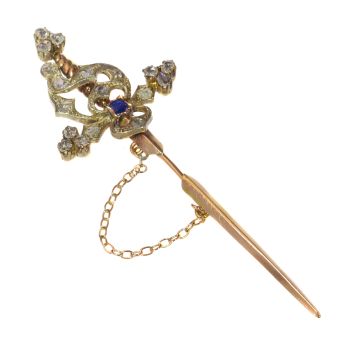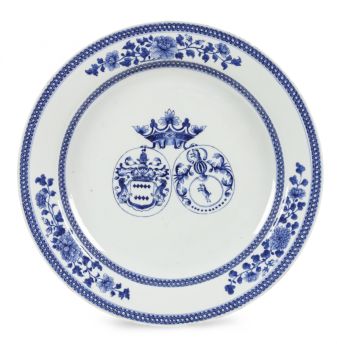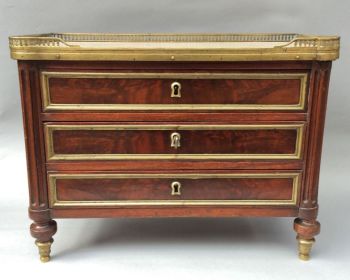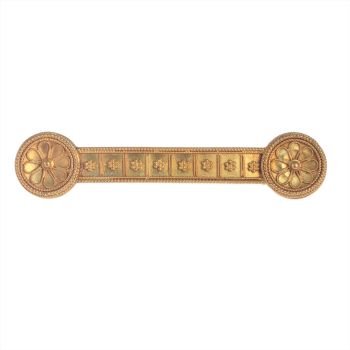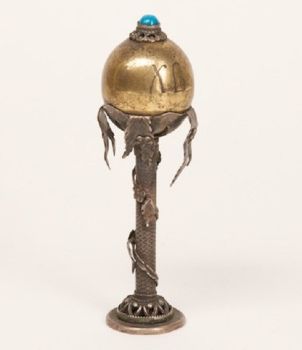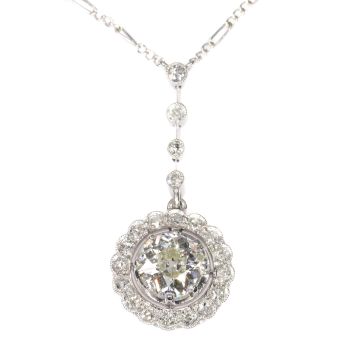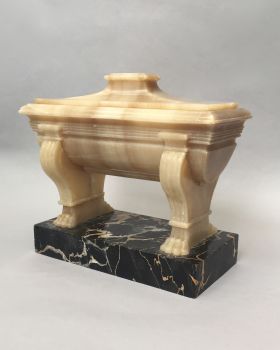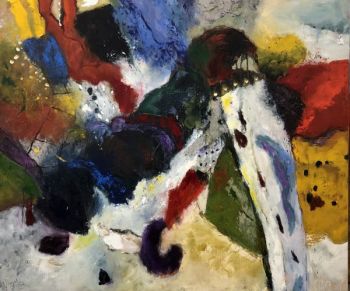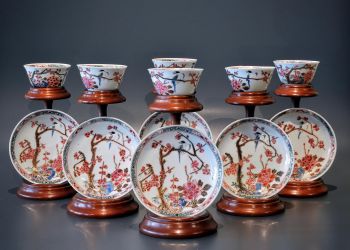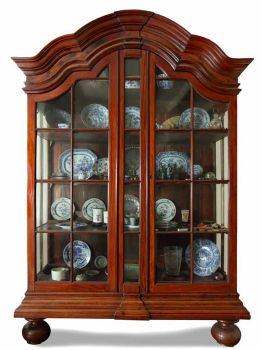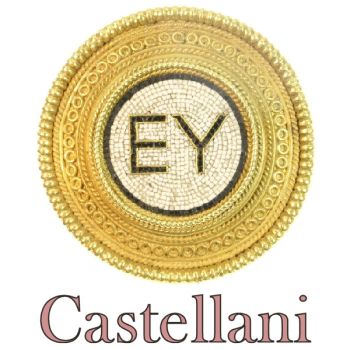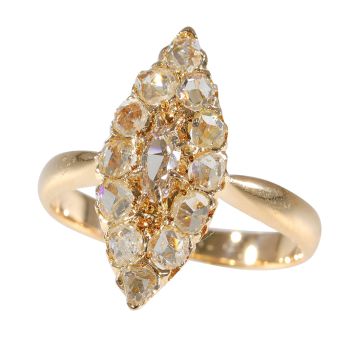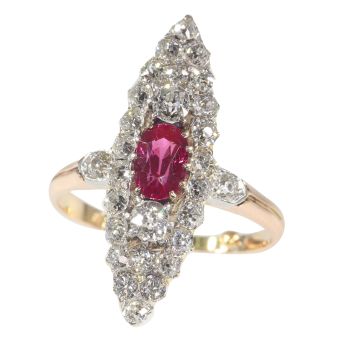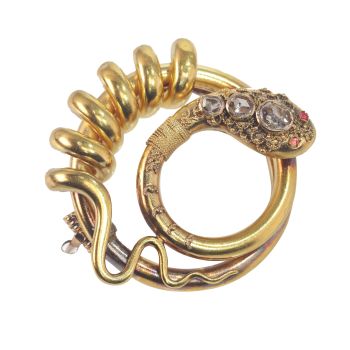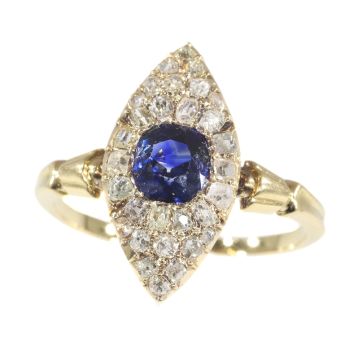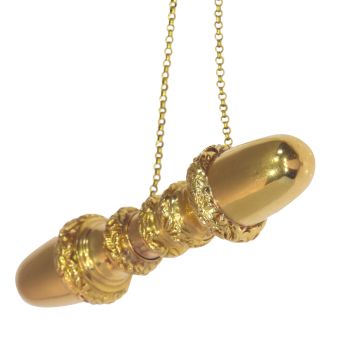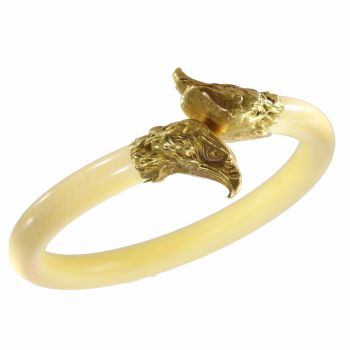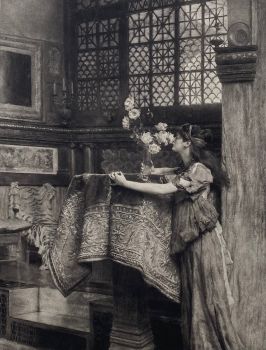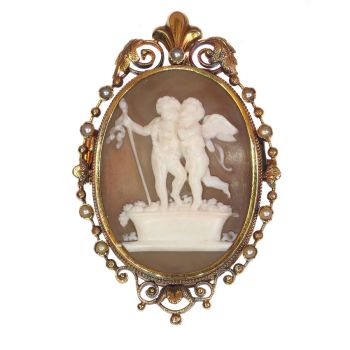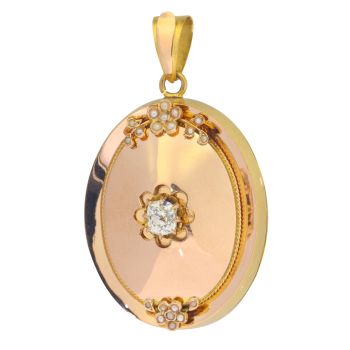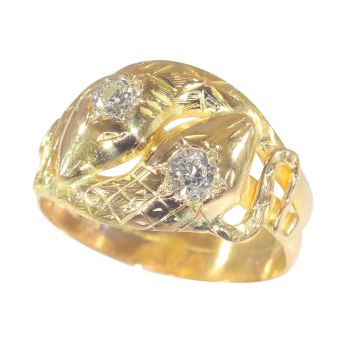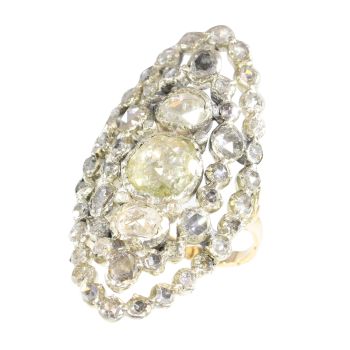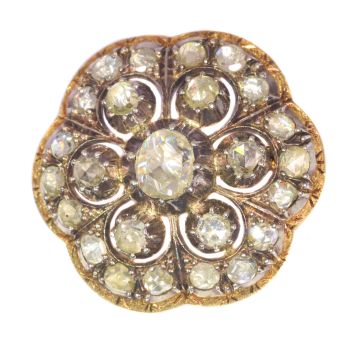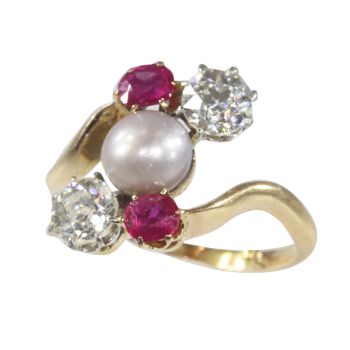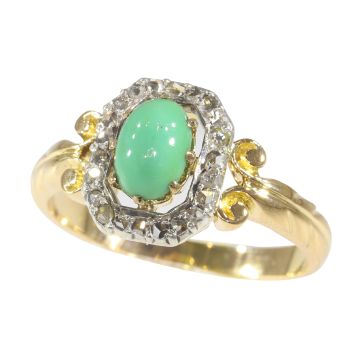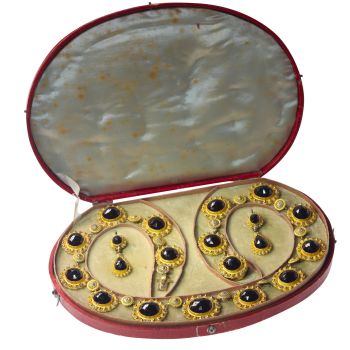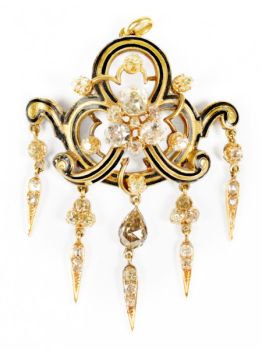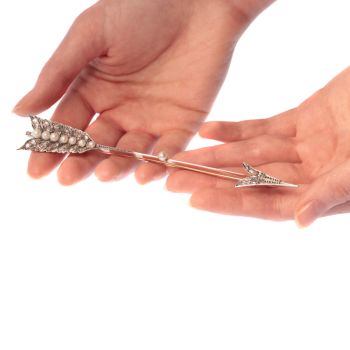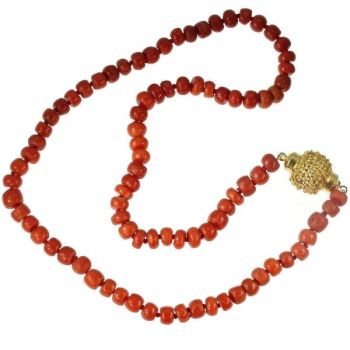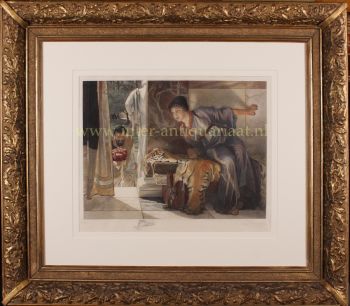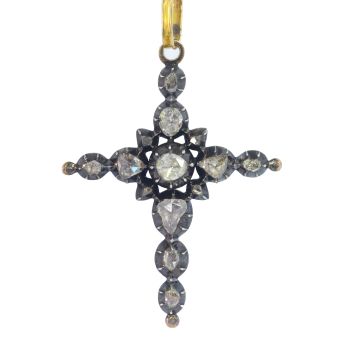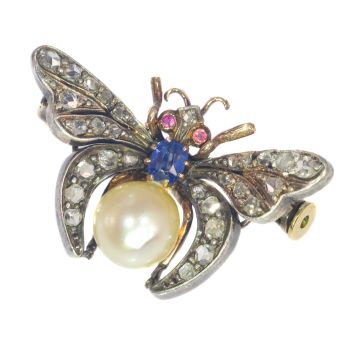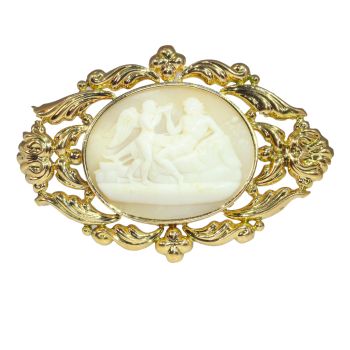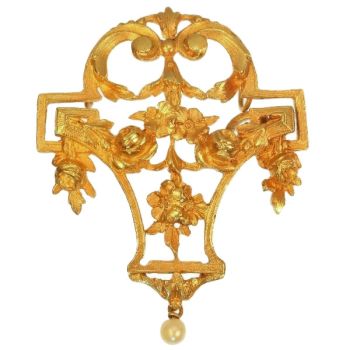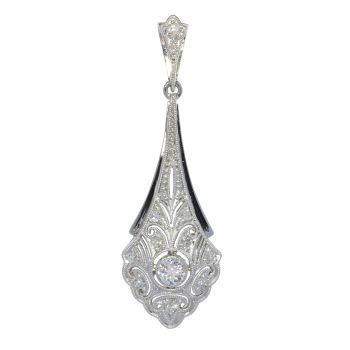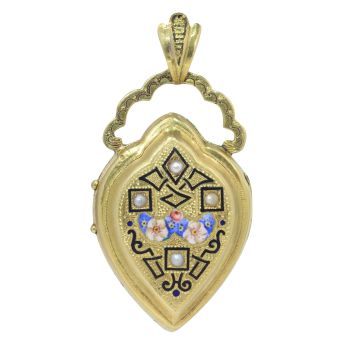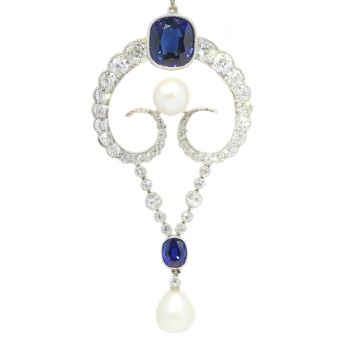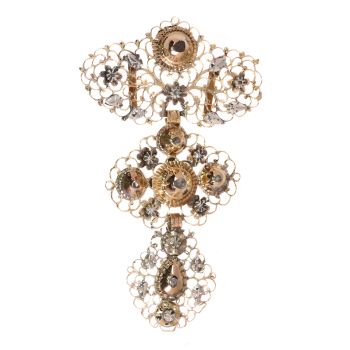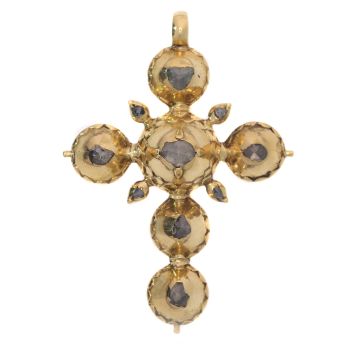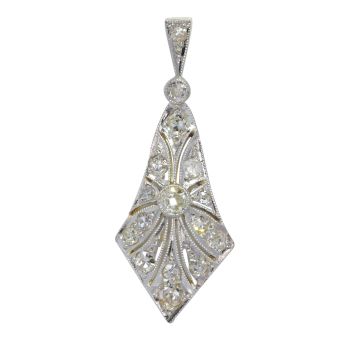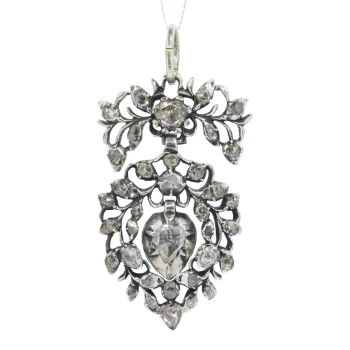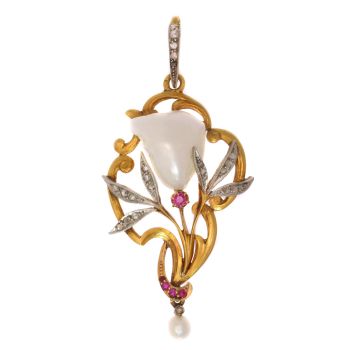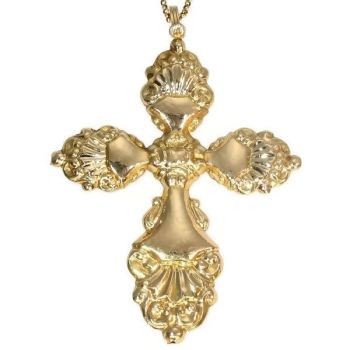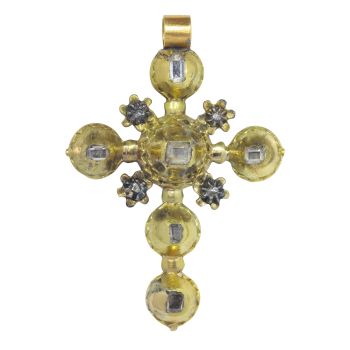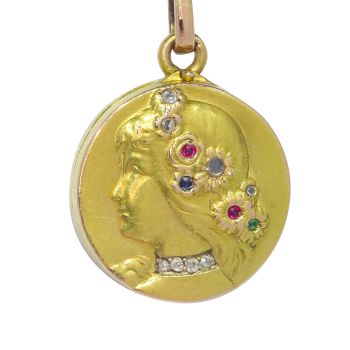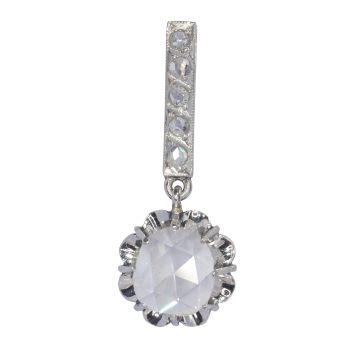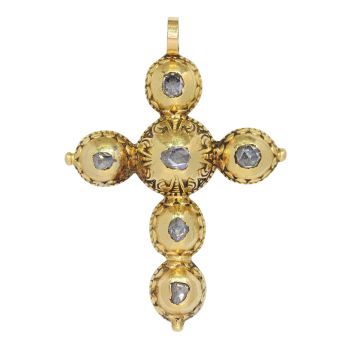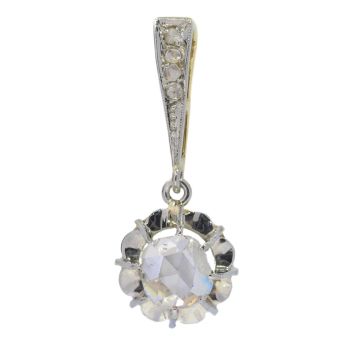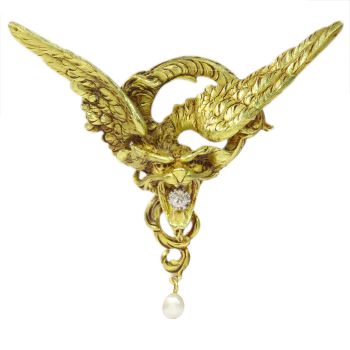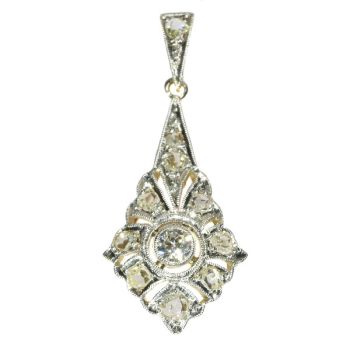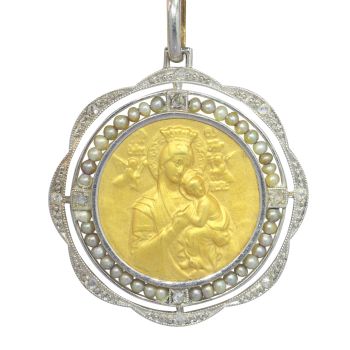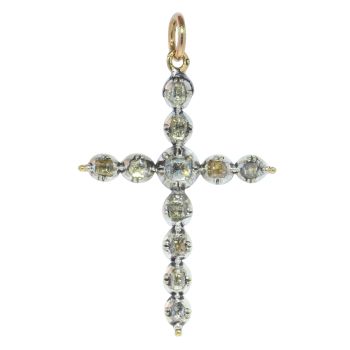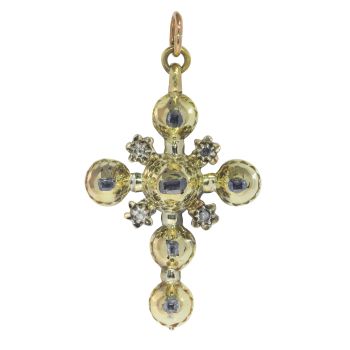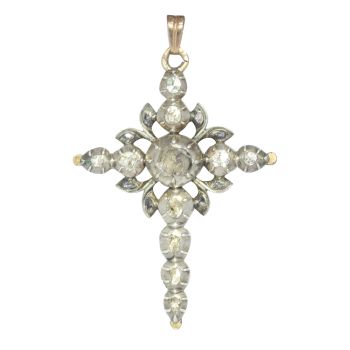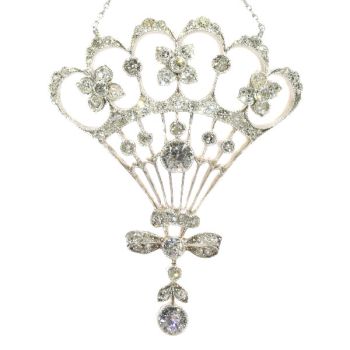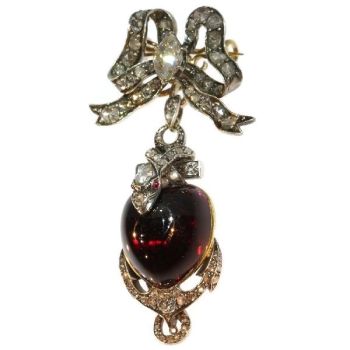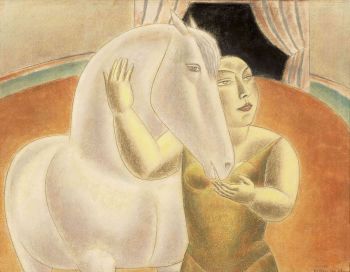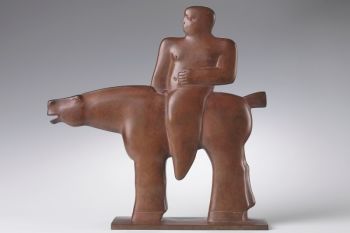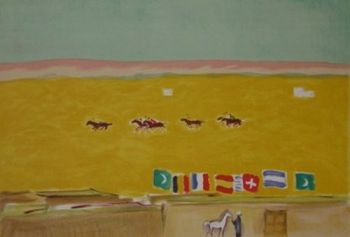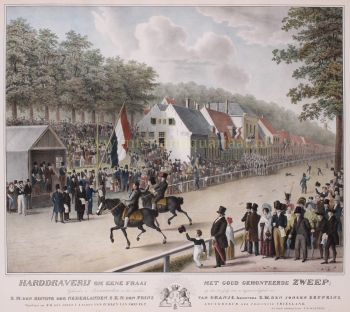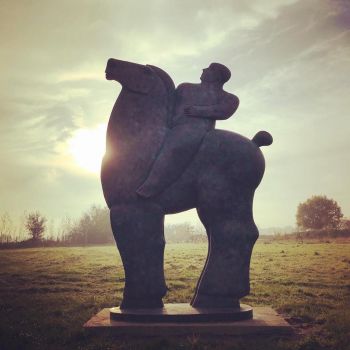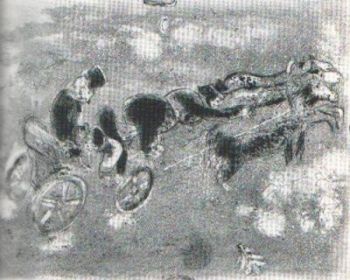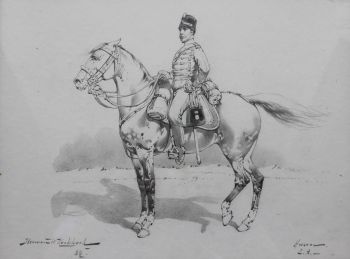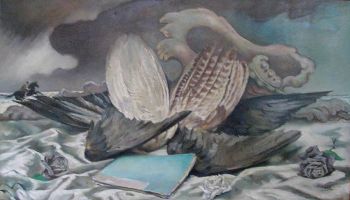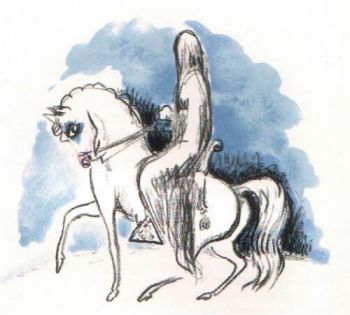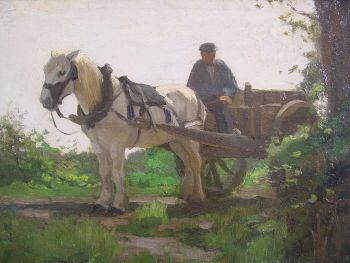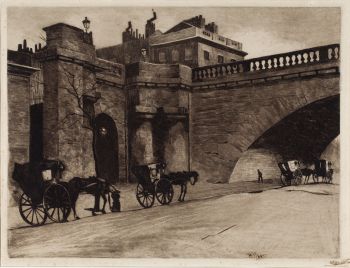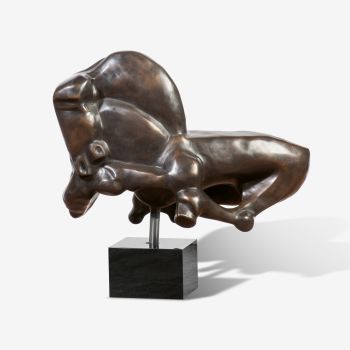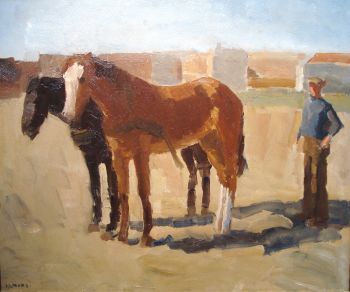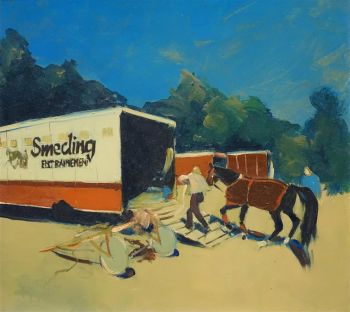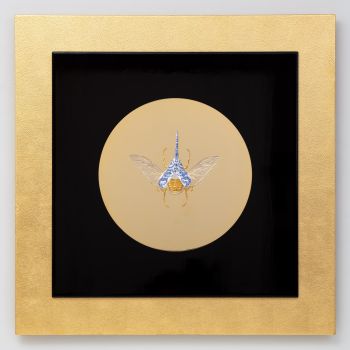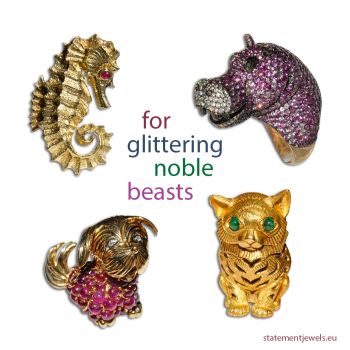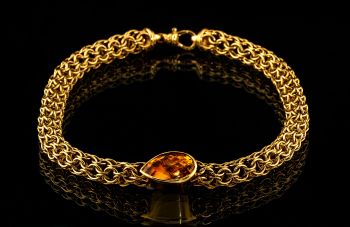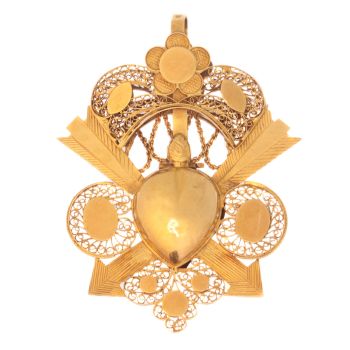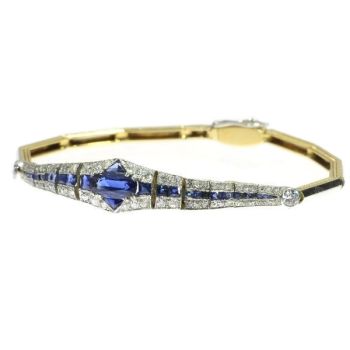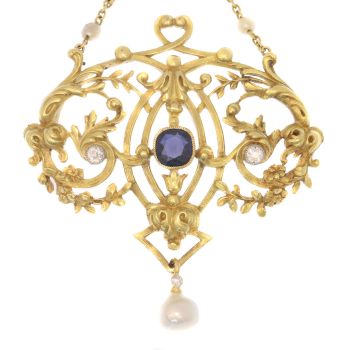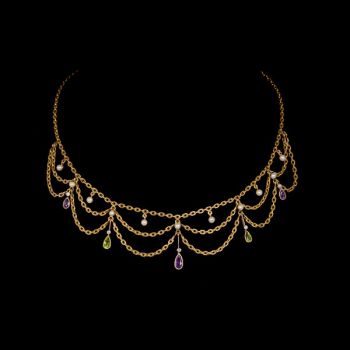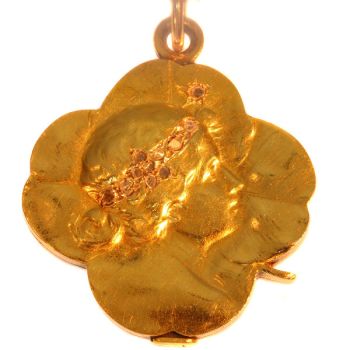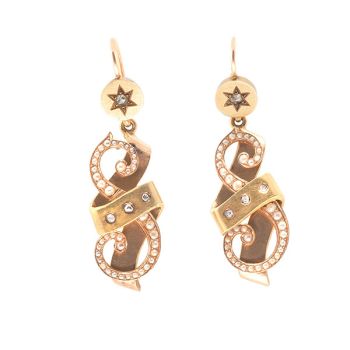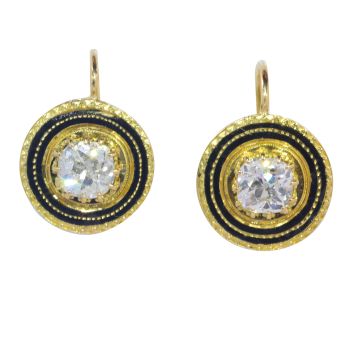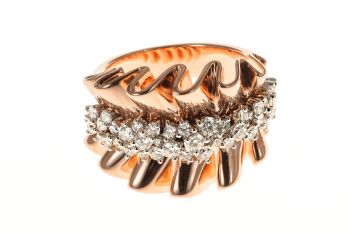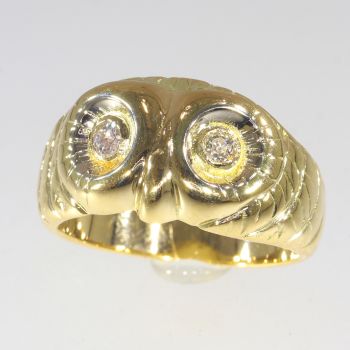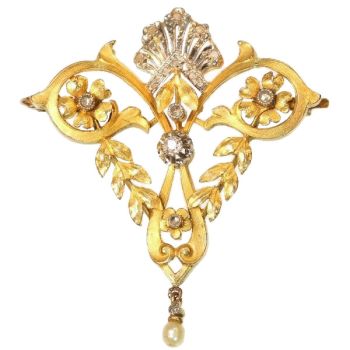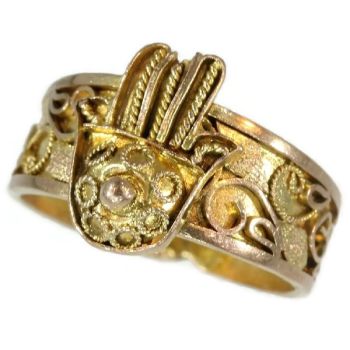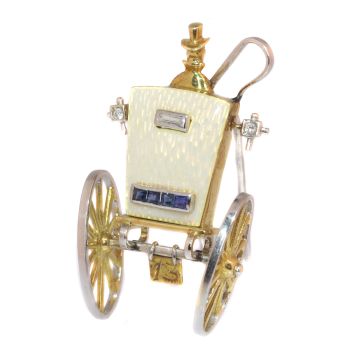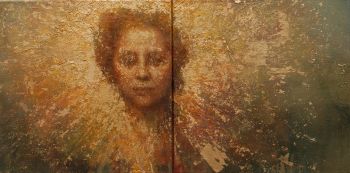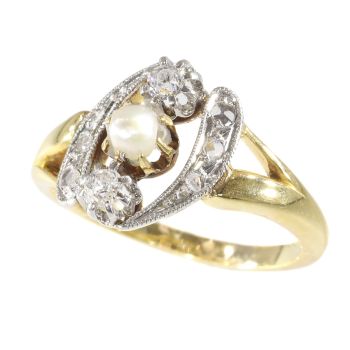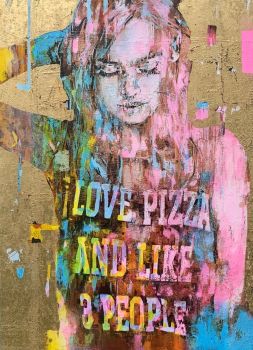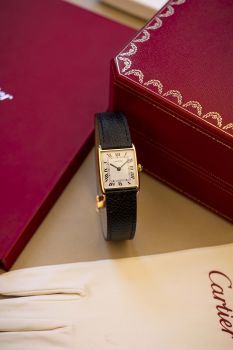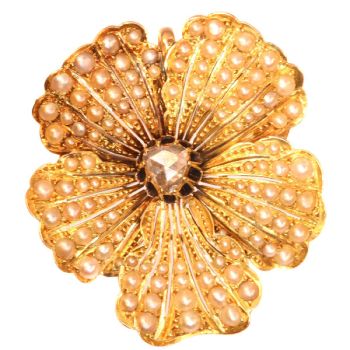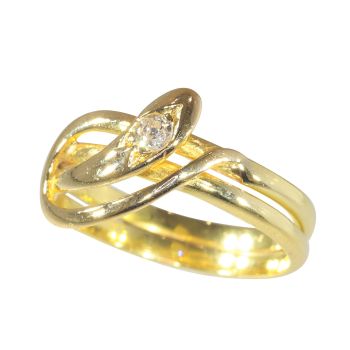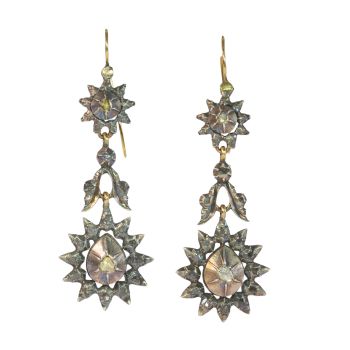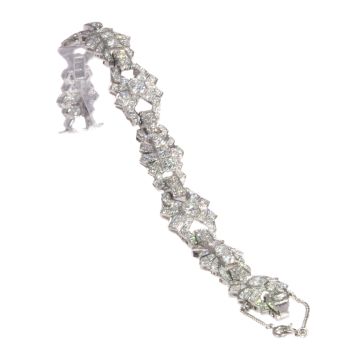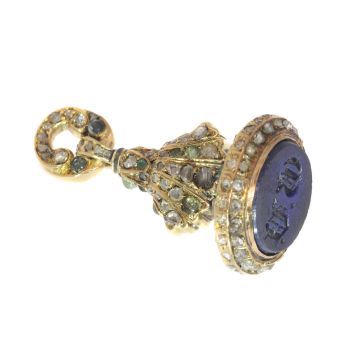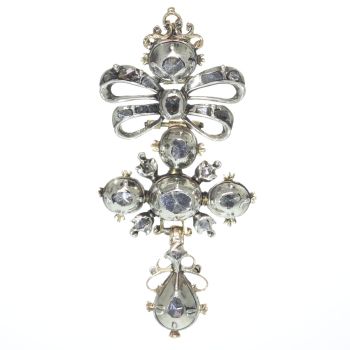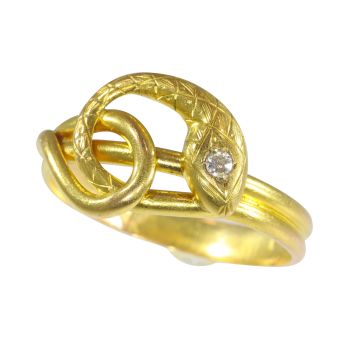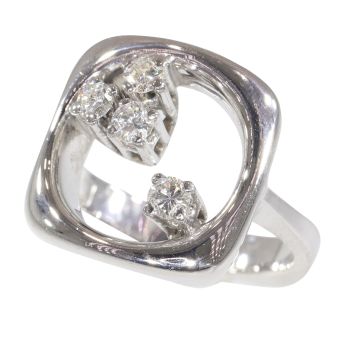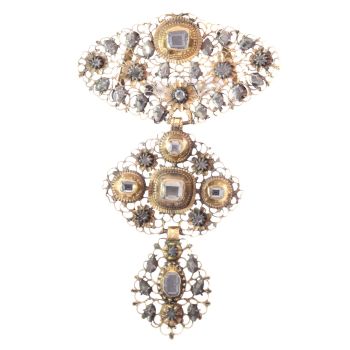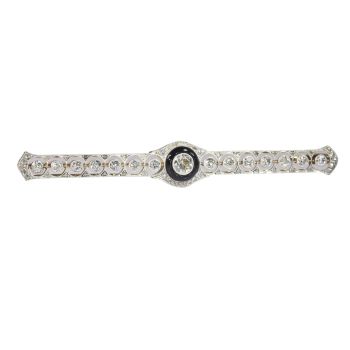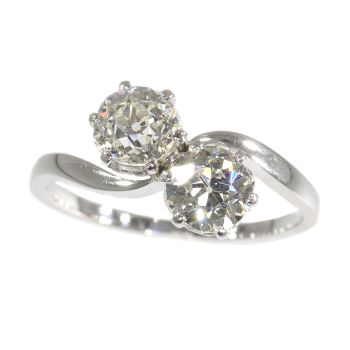Vintage 18K Gold Horse Pendant Seal: Victorian Elegance 1840
Unknown artist
Gold
€ 4.250
Adin Fine Antique Jewellery
- About the artwork
An exquisite vintage antique pendant seal from around 1840, featuring a standing horse with a raised foreleg, crafted in 18K yellow gold. This piece hails from the Romantic Victorian Period, a time of sentimental and symbolic designs inspired by QueenVictoria's love and devotion. The horse, a universal symbol of freedom, is beautifully rendered in this pendant, reflecting the era's intricate craftsmanship. Enhanced by a single carnelian stone, this pendant combines historical charm with artisticelegance. In very good condition, it likely originates from France or Belgium, as suggested by its hallmarks. A remarkable treasure for any collection.
Antique jewelry object group
pendant / seal
Condition
very good condition
more info on our condition scale
Country of origin
France or Belgium (see explanation on hallmarks further in text)
Style
Early-Victorian - Victorian decorative arts refers to the style of decorative arts during the Victorian era. The Victorian era is known for its eclectic revival and interpretation of historic styles and the introduction of cross-cultural influencesfrom the middle east and Asia in furniture, fittings, and Interior decoration. Victorian design is widely viewed as having indulged in a regrettable excess of ornament. The Arts and Crafts movement, the aesthetic movement, Anglo-Japanese style, and ArtNouveau style have their beginnings in the late Victorian era.
See also: early-Victorian
more info on styles
Style specifics
The Romantic Victorian Period - Experts divide the reign of Queen Victoria, also called The Victorian era (1837 - 1901) in to three periods of about twenty years each; The Romantic Victorian Period (1837 - 1860), The Grand Victorian Period (1860 -1880), and the Late or Aesthetic Victorian Period (1880 - 1901).
We consider this to be of the Romantic Victorian Period. This period covers the coronation of Victoria as Queen of Great Britain and Ireland, and her marriage to King Albert and their love, their devotion to their marriage and to their country are thesources of inspiration for this period. The jewels of this period are made of intricate carvings, special techniques where the enamel is subtly worked. These techniques allowed to give the jewel a certain opulence with less precious metal needed. Asprecious metals were really rare at that time. Highly favored (semi-) precious stones in this period are amethyst, coral, garnets, seed pearls and turquoises. The connotation is obviously sentimental, symbolic and romantic with reminiscent Gothic and/orRenaissance patterns and an abundant use of motifs like anchors, birds, branches, crosses, hearts and snakes.
Period
ca. 1840
Events & facts of this era, poetry of this era, fashion of this era.
Source of inspiration
Mother Nature
Theme
Horses - The horse is a universal symbol of freedom without restraint, because riding a horse made people feel they could free themselves from their own bindings.
Material 18K
yellow gold (touchstone tested)
more info on precious metals
Precious stones
One carnelian
Birthstones
Cornelian is the birthstone (or month stone) for July.
more info on birthstones
Hallmarks
The control mark here represents a horse’s head and was in use in Belgium from 1831 and in France from about 1838.
more info on hallmarks
Dimensions
3,20 cm (1,26 inch) x 2,65 cm (1,04 inch) x 1,89 cm (0,74 inch)
see picture with a ruler in millimeters and inches
Weight
8,90 gram (5,72 dwt)
Adin Reference Nº
24106-0277
Copyright photography
Adin, fine antique jewellery
Additional information
our latest acquisitions
jewelry glossary
wall of fame
visit us in Antwerp
subscribe to our mailinglist
- About the artist
It might happen that an artist or maker is unknown.
Some works are not to be determined by whom it is made or it is made by (a group of) craftsmen. Examples are statues from the Ancient Time, furniture, mirroirs, or signatures that are not clear or readible but as well some works are not signed at all.
As well you can find the following description:
•“Attributed to ….” In their opinion probably a work by the artist, at least in part
•“Studio of ….” or “Workshop of” In their opinion a work executed in the studio or workshop of the artist, possibly under his supervision
•“Circle of ….” In their opinion a work of the period of the artist showing his influence, closely associated with the artist but not necessarily his pupil
•“Style of ….” or “Follower of ….” In their opinion a work executed in the artist’s style but not necessarily by a pupil; may be contemporary or nearly contemporary
•“Manner of ….” In their opinion a work in the style of the artist but of a later date
•“After ….” In their opinion a copy (of any date) of a work of the artist
•“Signed…”, “Dated….” or “Inscribed” In their opinion the work has been signed/dated/inscribed by the artist. The addition of a question mark indicates an element of doubt
•"With signature ….”, “With date ….”, “With inscription….” or “Bears signature/date/inscription” in their opinion the signature/ date/ inscription has been added by someone other than the artist
Are you interested in buying this artwork?
Artwork details
Related artworks
Unknown artist
Silver Russian Presentation Easter Egg1880 - 1899
Price on requestH.W.C. Dullaert Art & Antiques Dealer
Unknown artist
Series of 6 Chinese cups and saucers (Yongzheng period)1722 - 1735
Price on requestKuipers Kunst & Antiek
1 - 4 / 12- 1 - 4 / 24
- 1 - 4 / 24
Willem Witsen
Waiting carriages in front of Waterloo Bridge1850 - 1900
Price on requestKunsthandel Pygmalion
Willem Witsen
Waiting carriages in front of Waterloo Bridge1850 - 1900
Price on requestKunsthandel Pygmalion
1 - 4 / 24Samuel Dejong
Anatomia Blue Heritage, Hercules Open2017 - 2019
Price on requestVilla del Arte Galleries
 Curated by
Curated byGallerease Magazine
1 - 4 / 24- 1 - 4 / 12








